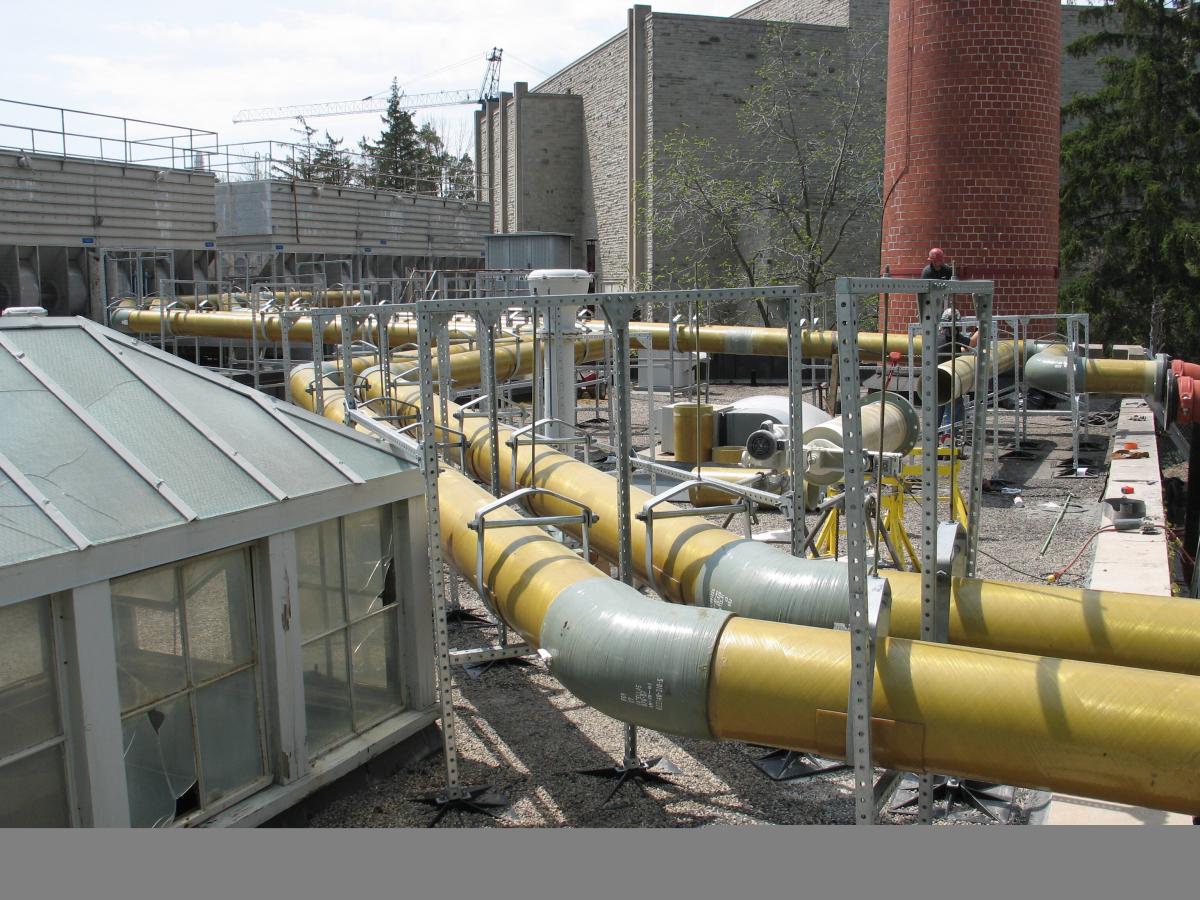Discover the Strength: Why FRP Piping is Transforming Industrial Applications

In the fast-paced and constantly evolving landscape of industrial applications, the selection of appropriate materials for piping systems is not just a matter of efficiency, but also of long-term sustainability and cost-effectiveness. Fibreglass Reinforced Plastic (FRP) piping systems are at the forefront of this transformation, offering a myriad of benefits that cater to the diverse needs of various industries. This comprehensive exploration into fibreglass piping systems will reveal why they are becoming the preferred choice for industrial applications, revolutionizing the way businesses think about durability, cost, and environmental impact.
The Evolution and Composition of Fibreglass Reinforced Plastic Piping Systems
FRP (Fibreglass Reinforced Plastic) Piping Systems have undergone significant evolution, transforming how industries approach material choice for their piping needs. Initially conceived as an alternative to conventional materials like metal and concrete, fiberglass has proven to be much more than a mere substitute. It's a composite material that ingeniously blends the resilience and strength of fibreglass with the versatility of various resin types. This synergy creates piping systems that excel in both strength and durability, setting a new standard in material performance.
A key to FRP's remarkable capabilities lies in its sophisticated manufacturing process. This process is not a one-size-fits-all but is highly adaptable, allowing the integration of diverse resin types and fibreglass configurations. Such versatility in manufacturing means that fiberglass piping can be customized to meet the specific demands of various industries, whether they require resistance to harsh chemicals, durability under extreme temperatures, or resilience in fluctuating environmental conditions.
The result is a piping system that stands out for its ability to withstand a wide array of corrosive substances and challenging operational environments. This resilience extends the lifespan of the systems, reducing the need for frequent replacements and repairs. In essence, the evolution of Fiberglass Piping Systems marks a significant leap in industrial materials, offering a robust, adaptable, and durable solution for modern industrial applications.
Revolutionizing Industries with Superior Properties
FRP (Fibreglass Reinforced Plastic) Piping Systems are increasingly recognized for their outstanding properties, fundamentally changing how industries approach the construction and maintenance of piping infrastructures. The key attributes that set fiberglass piping apart include its impressive corrosion resistance, inherent lightweight nature, and an exceptional strength-to-weight ratio. These properties collectively contribute to FRP's growing popularity across various sectors.
One of the most significant advantages of FRP piping is its robust resistance to corrosion. Unlike conventional materials such as metal, which are prone to degradation through rust and chemical reactions, fiberglass remains remarkably stable and intact. This durability is especially crucial in industries like chemical processing, where pipes are routinely exposed to a range of corrosive substances. The ability of fiberglass to withstand such harsh environments not only ensures operational reliability but also considerably extends the lifespan of the piping systems.
In addition to its resistance to corrosion, the lightweight nature of fibreglass is a game-changer in terms of installation and transportation. Fibreglass piping is markedly lighter than traditional materials like steel, which simplifies the logistics involved in transporting and handling the materials. This weight advantage makes fibreglass an ideal choice for projects requiring rapid deployment, such as in remote mining operations, or in challenging environments like offshore oil and gas platforms. The ease of installation not only accelerates project timelines but also translates into significant cost savings in terms of labour and equipment.
These superior properties of FRP Piping Systems are not just enhancing the efficiency and cost- effectiveness of industrial operations but are also paving the way for innovative applications and designs in various sectors. With its unique blend of durability, lightness, and strength, FRP is redefining the benchmarks for industrial piping solutions.
Economic and Environmental Advantages
The economic benefits of FRP Piping Systems are manifold. The longevity and low maintenance requirements of FRP result in a lower total cost of ownership compared to traditional piping systems. This aspect is crucial for industries operating under tight budget constraints or those looking to reduce operational costs. In addition, the environmental advantages of fiberglass cannot be overlooked. As industries worldwide strive for sustainability, FRP offers an eco-friendlier alternative. Its production process has a lower carbon footprint.
Economic and Environmental Advantages of FRP Piping Systems
FRP (Fibreglass Reinforced Plastic) Piping Systems offer a compelling array of economic and environmental benefits, aligning with the growing demand for more sustainable and cost-effective industrial practices. The economic advantages of FRP primarily stem from its remarkable longevity and reduced maintenance needs. Unlike traditional materials that frequently require repairs and replacements due to corrosion and wear, FRP's resilience ensures a longer lifecycle, leading to lower overall costs. This is particularly advantageous for industries working within stringent budget limits or those actively seeking to curtail operational expenditures.
From an environmental standpoint, fibreglass stands out as a greener alternative to conventional piping materials. Its production process is designed to have a reduced carbon footprint, which is increasingly important in a world where industrial activities are closely scrutinized for their environmental impact.
These economic and environmental benefits make FRP Piping Systems not just a practical choice for various industries but also a responsible one. In adopting FRP, industries can expect not only to see a reduction in their operational costs but also to contribute positively to the global efforts in environmental conservation. This dual advantage positions FRP as an ideal material for modern industrial applications that prioritize both efficiency and sustainability.
The Future of Industrial Piping with Fiberglass
As industries continue to evolve and face new challenges, the role of FRP Piping Systems becomes increasingly significant. Their ability to offer a combination of strength, durability, cost-effectiveness, and environmental sustainability positions FRP as a key player in the future of industrial applications. For businesses looking to enhance their operations while reducing their environmental impact, FRP Piping Systems present an opportunity to step into a new era of industrial efficiency and responsibility.
Contact us today to find the right solution for your project!